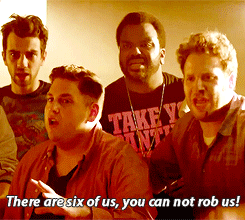Osias Jota
Shared posts
Jorge veio lá da Capadócia ♪ Proibida pra mim, no way!
Vista da superfície de marte

Da necessidade de canais incomuns para escape de frustração em situações de irritação repetitiva
Osias Jotamotoboy++
Daí que você tem um problema. Não é um problema novo, não é um problema grande, não é um problema dramático, não é um problema inédito, é apenas um problema. Ele já vem de algum tempo, ele já vem consumindo algum esforço, ele já foi comunicado a todas as pessoas com quem você tem contato o bastante para comentar sobre algum problema seu. Com algumas você abordou o problema de forma vaga (“ah, sei como é, também tenho esse problema”), com outros de forma pormenorizada (“então, e por causa disso, disso e disso, isso é um problema, me deixa trazer o retroprojetor, eu fiz umas lâminas”), mas nesse meio tempo o problema persistiu, não foi resolvido, e a duração dele não fez diminuir o seu nível de contrariedade em relação ao problema. Na verdade ele apenas vem aumentando.
E você quer falar sobre ele com sua namorada o tempo todo. Na verdade você tem a impressão de que fala sobre ele com a sua namorada o tempo todo. Mas isso te parece chato, te parece cansativo, e não parece justo com ela. Afinal, quando vocês se conheceram era tudo all fun and games e spray de chantilly e agora você fica nessa de só falar de problemas? Então você tenta evitar. Não acha que consiga, não acha que esteja dando certo, mas se sente um pouco aliviado de pensar que não está falando do problema sempre que está pensando no problema. O que é bom, já que você está sempre pensando no problema.
E você quer falar com sua família sobre o problema. Mas sabe como são famílias. Pra sua mãe todo problema é um grande problema, e ainda mais sendo o seu problema, se trata de um imenso problema. Se você continuar falando com ela sobre o problema ela não vai conseguir falar com você sobre nada além do problema e por mais que você efetivamente não ande pensando em nada além do problema, você gosta de ideia de que, ao menos quando falar com a sua mãe, não vai precisar pensar no problema. Ainda que você vá pensar no problema. Com seu irmão você não fala sobre o problema porque ele te recomendaria malhar e bater no problema, e você não apenas não quer malhar como não acha que violência seja a solução pro problema. Ao menos não por enquanto.
E você tenta se controlar em relação aos seus amigos também, claro. Não que funcione muito bem também, claro. Mas você não quer ser o cara que enquanto todos estão falando de atividades interessantes e divertidas fica falando apenas sobre o próprio problema. Férias em Aruba? Eu tenho um problema. Festinha no sábado. Então, tem meu problema. Estamos pensando em adotar uma criança. Espero que ela nunca tenha o meu problema, porque é um grande problema. Meu problema. Então você tenta evitar falar sobre o seu problema, mas tudo que te passa pela cabeça é o seu problema e no seu íntimo você acha que todos estão sendo meio insensíveis de não levar mais a sério o seu problema, já que ele é o seu problema. Ainda mais porque as lâminas já estavam prontas e o retroprojetor não se carregou sozinho.
E é assim que, num dia normal, você, no tempo que demora pro sinal da maquininha do visa pegar, apenas por falta de qualquer outra válvula de escape, já que tem a sensação de que já encheu sua namorada, sua família, seus amigos e todo mundo mais que você conhece, resolve falar sobre o seu problema pro entregador de pizza. E como o sinal é realmente péssimo, você tem tempo pra falar dos detalhes, contar as nuances, comentar suas aflições e, enquanto finalmente espera o “processando” sair da tela, você ouve uma frase que, ainda que dita no tom mais desinteressado do mundo, te ensina uma valiosa lição sobre as proporções de sofrimento, a relatividade da dor e o empirismo da realidade. “Bem, mas pelo menos você não precisa trabalhar de sábado, final de semana, né, fera? Tem que ver isso aí também”.
Filed under: é como as coisas são, Desocupações, Rio, Sem Categoria, Vida Pessoal, vida profissional Tagged: aí não, aí sim, abrindo o coração, amigos, aprendendo com delivery, é a vida, compartilhamento de informações, diluindo reclamações, dramas da vida real, entregas, máquina do visa, mundo sem sentido, pelo menos eu não trabalho no final de semana e fico sempre grato por isso, pessoas, pizza, problemas, retroprojetor, tem que refletir, teorias, Vida Pessoal
Rua Goncalo de Carvalho: Most Beautiful Street in the World via...
Marcadores de superioridade
Era uma vez, em um café superfaturado da cidade de São Paulo (aliás, existem cafés não-superfaturados em São Paulo?), uma fila. Não muito longa, não muito curta: umas cinco pessoas, esperando para fazer um pedido e tirar a ficha no caixa. No terceiro lugar da fila, uma senhora com seus seguramente mais de setenta anos. No segundo, um homem – apenas isto, um homem. No primeiro, uma mulher – apenas isto, uma mulher.
Os cafés superfaturados são superfaturados por um motivo: neles você pode pedir não apenas café, mas também chocolate, caputchino, mocatchino e meia dúzia de outras coisas que podem ser bebidas quentes.
Não é de admirar, portanto, que a mulher tenha ficado um pouco indecisa diante de tantas opções. O que surpreende um pouco, talvez, é que ela tenha passado cerca de três minutos sem fazer o seu pedido, perguntando à atendente, em vez disso, qual era a diferença do moca pro caputchino, quanto de chocolate ia em cada um, se tinha alguma opção lait, dáiet, etc.
Depois de três minutos – que pode parecer muito pouco tempo, mas experimente fechar os olhos e contar pausadamente até cento e oitenta –, o homem atrás dela arriscou:
- Olha, primeiro você tem que decidir o que vai comprar antes de entrar na fila, senão você bloqueia todo mundo.
- Ué, mas eu ainda não me decidi! Estou escolhendo, por acaso não posso escolher?
- Você pode, mas escolha antes de entrar na fila. Não é justo, existem outras pessoas atrás de você. Como esta senhora.
Nisso, a senhora se adianta:
- Posso passar na sua frente? Eu já sei o que vou pedir e já estou com o dinheiro trocado. Um espresso, por favor.
(Adoro quem pede permissão para fazer alguma coisa, já fazendo – é o famoso “posso ver?” das crianças, que é a primeira coisa que elas dizem quando tomam um objeto das mãos umas das outras.)
A mulher continua:
- Se a senhora quer passar na minha frente, ela que passe, mas você está sendo muito deselegante, rapaz!
Então o homem se exaltou. E falou em absurdo e incivilidade e em desrespeito à cidadania. E a mulher respondeu que ele não tinha nenhuma educação. Até que o homem proferiu a frase mágica:
- Queria ver se você fizesse isso nos Estados Unidos, o que que iam te dizer!
Mas, como um Harry Potter que rebate o feitiço do bruxo mau com uma mera sacudidela da varinha, a mulher respondeu:
- Pois eu já fiz muito isso nos Estados Unidos, e sempre fui tratada com educação! E além disso, sou professora de inglês muito bem sucedida graças a Deus, e meus alunos sempre foram muito educados comigo!
Isto posto, a partida ficou em um a um – cada qual pediu seu café (ela) e sanduíche natural (ele) e foi degustá-lo em cantos opostos do estabelecimento.
Ao contrário de quando duas mulheres ricas brigaram no shopping, desta vez, pelo mero fato de ninguém ter saído no tapa, tive vontade de dar um abraço nos dois.
Eles são um retrato de valores aos quais nossa velha e combalida classe média se aferra com imenso fervor. E esses valores nada têm a ver com a discussão sobre o lugar na fila, que isso não tem importância alguma – mas com aquilo que o homem e a mulher consideram um marcador de superioridade de uma pessoa sobre outra.
Em primeiro lugar, a mui celebrada viagem para os Isteits. Há alguns anos, dizer “estive nos Estados Unidos e sei como é” podia ser uma frase de provocar OHs na plateia, dado que viajar era para poucos – mas, hoje, toda a velha classe média (e boa parte da nova também) viaja aos Estados Unidos com frequência. Para a classe média de São Paulo, Miami tornou-se um destino turístico equiparável ao Rio de Janeiro – compare os preços de hotéis e passagens aéreas e me diga se estou errada.
Resta à classe média o conhecimento do inglês como privilégio. Falar inglês fluentemente ainda é sinal de status, num país historicamente monolíngue como o nosso. Mas atualmente o que se vê são empregadas domésticas e serventes de obra economizando para pagar escola de inglês para os filhos. Se os pobres já lotam os aeroportos, em breve também escreverão hashtags em inglês no instagram. #OhMyGod #SoHumilliating #SoInfuriating
O homem e a mulher podem ter concepções opostas do que seja uma fila democrática e justa, mas ambos se igualam em sua idealização dos Estados Unidos (e, por extensão, da língua inglesa) como um modelo de civilidade e boa educação a ser alcançado. Mais que isso, ambos se agarram a marcadores de superioridade que estão extintos ou em processo de extinção.
Seria bom se o homem considerasse que não importa muito a civilidade (ou falta dela) dos estadunidenses – importa, sim, a civilidade que estamos permanentemente construindo para nós, segundo nossos próprios parâmetros. Seria melhor ainda se a mulher se desse conta de que sua profissão (ou seu grau de êxito e competência nela) não tem qualquer relação com o tempo que se leva para fazer um pedido quando há uma fila esperando atrás de você.
Acima de tudo, seria fenomenal se eu entendesse que aquilo que eu gostaria que os outros entendessem jamais será objeto de sua preocupação.
targaryns: *jon snow travels to outer space* aliens: ah, you must be ned stark’s bastard
Do not meddle in the affairs of dragons for you are crunchy and ...
Esperança discreta
O conto do “Café Pendente” tem circulado bastante pelo facebook e pode ser lido aqui.
Just the good parts
"I want to be an actress, but I don't want to go on auditions."
"I want to play varsity sports, but I need to be sure I'm going to make the team."
"It's important to sell this great new service, but I'm not willing to deal with rejection."
You don't get to just do the good parts. Of course. In fact, you probably wouldn't have chosen this path if it was guaranteed to work every time.
The implication of this might surprise you, though: when the tough parts come along, the rejection and the slog and the unfair bad breaks, it makes sense to welcome them. Instead of cursing or fearing the down moments, understand that they mean you've chosen reality, not some unsustainable fantasy. It means that you're doing worthwhile, difficult work, not merely amusing yourself.
The very thing you're seeking only exists because of the whole. We can't deny the difficult parts, we have no choice but to embrace them.
Star Wars is the most deceptive and seductive pro-fascist narrative ever written
[Link]
Interesting Analysis of Karl Marx’s Writing
In short, the takeaway I got from it was that we should not necessarily think of Marx as “the Communism guy”, but rather the science fiction guy who wrote about the social implications of what would happen when technology eliminated the need for people to work.
And it’s kind of happening already, right? As I and may others have said many times…the jobs aren’t coming back. They’re going to computers, automation, robots, AI, self-checkout, etc.
So at some point we’re going to be left with a population that has nothing to do. Or, more accurately, no reason to have to perform labor, since it will be done by machines.
What happens then?
El fin de la humanidad
Jorge veio lá da Capadócia ♪ esperando o ônibus da escola
El enigma de la anomalía Pioneer

Cuando toca el tema de gravitación, suelo comenzar hablando a mis alumnos sobre los descubrimientos de Johannes Kepler. Carl Sagan, en su Cosmos, nos narra magistralmente la historia de cómo este astrónomo pugnó por ajustar los movimientos de los planetas a un modelo geométrico. No dudó en viajar hasta Dinamarca para conseguir las mejores medidas de las posiciones planetarias, cosa que no obtuvo sino después de largos años de duro esfuerzo. Al final, consiguió ajustar la órbita de Marte a una circunferencia. O casi. Había un pequeño error...
etiquetas: enigma, anomalía, pioneer, kepler, sondas, cosmos
50 Common Misconceptions Debunked in 6 Minutes



This video is about to change your life. Not just because it is funny, informative, quirky and quick, but also because you're about to realize your entire life is a lie
All those fun facts, little gems of historical knowledge, tidbits of trivia and did-you-know brain teasers were wrong. You read it right: worthless, bologna, made-up, fictional, simply common misconceptions
SEE ALSO: Amazing Facts That Will Tickle Your Brain
Time to set things straight with this six-minute explosion of info via YouTuber MentalFloss
Click here to view this galleryImage via iStockphoto, ericsca.
My lovely followers, please follow this blog immediately!
The Trader Joe's Lesson: How to Pay a Living Wage and Still Make Money in Retail

The average American cashier makes $20,230 a year, a salary that in a single-earner household would leave a family of four living under the poverty line. But if he works the cash registers at QuikTrip, it's an entirely different story. The convenience-store and gas-station chain offers entry-level employees an annual salary of around $40,000, plus benefits. Those high wages didn't stop QuikTrip from prospering in a hostile economic climate. While other low-cost retailers spent the recession laying off staff and shuttering stores, QuikTrip expanded to its current 645 locations across 11 states.

Many employers believe that one of the best ways to raise their profit margin is to cut labor costs. But companies like QuikTrip, the grocery-store chain Trader Joe's, and Costco Wholesale are proving that the decision to offer low wages is a choice, not an economic necessity. All three are low-cost retailers, a sector that is traditionally known for relying on part-time, low-paid employees. Yet these companies have all found that the act of valuing workers can pay off in the form of increased sales and productivity.
"Retailers start with this philosophy of seeing employees as a cost to be minimized," says Zeynep Ton of MIT's Sloan School of Management. That can lead businesses into a vicious cycle. Underinvestment in workers can result in operational problems in stores, which decrease sales. And low sales often lead companies to slash labor costs even further. Middle-income jobs have declined recently as a share of total employment, as many employers have turned full-time jobs into part-time positions with no benefits and unpredictable schedules.QuikTrip, Trader Joe's, and Costco operate on a different model, Ton says. "They start with the mentality of seeing employees as assets to be maximized," she says. As a result, their stores boast better operational efficiency and customer service, and those result in better sales. QuikTrip sales per labor hour are two-thirds higher than the average convenience-store chain, Ton found, and sales per square foot are over 50 percent higher.
Entry-level hires at QuikTrip are trained for two full weeks before they start work, and they learn everything from how to order merchandise to how to clean the bathroom. Most store managers are promoted from within, giving employees a reason to do well. "They can see that if you work hard, if you're smart, the opportunity to grow within the company is very, very good," says company spokesman Mike Thornbrugh.
The approach seems like common sense. Keeping shelves stocked and helping customers find merchandise are key to maximizing sales, and it takes human judgment and people skills to execute those tasks effectively. To see what happens when workers are devalued, look no further than Borders or Circuit City. Both big-box retailers saw sales plummet after staff cutbacks, and both ultimately went bankrupt.
As global competition increases and cheap, convenient commerce finds a natural home online, the most successful companies may be those that focus on delivering a better customer experience. Ton's research on QuikTrip and other low-cost retailers--now a Harvard Business School case--is applicable across a variety of industries, she says. Toyota's production system, for example, gives all employees--including workers on the assembly lines--a voice in improving products.
But for a publicly traded company under pressure to show quarterly earnings, it's tempting to show quick profits by cutting labor costs. The bad economy has also made workers willing to take lower-paid positions rather than join the ranks of the unemployed. New employer-sponsored health insurance requirements under the Affordable Care Act are only going to give employers an additional incentive to shift workers to a part-time schedule.
There are also trade-offs to investing in employees. Businesses that spend more on their workers have to cut costs elsewhere. Trader Joe's streamlines operations by offering a limited number of products and very few sale promotions. Costco stocks products on pallets, as a warehouse would. And the QuikTrip model requires investors to have the fortitude to accept possible short-term drops in profits. "You have to take a loss for a little bit," says Maureen Conway, executive director of the Economic Opportunities Program at the Aspen Institute. "You have to pay above market. You have to change how you do business."
At the upper echelons of the American workforce, salaries have soared. Companies are accustomed to thinking of their highest-level employees as "talent," and fighting to hire and reward people who will help grow the company. Now Trader Joe's and QuikTrip are proving that lower-level employees can be assets whose skills improve the bottom-line as well.
 |
 |
Toward zero unemployment
A dozen generations ago, there was no unemployment, largely because there were no real jobs to speak of. Before the industrial revolution, the thought that you’d leave your home and go to an office or a factory was, of course, bizarre.
What happens now that the industrial age is ending? As the final days of the industrial age roll around, we are seeing the core assets of the economy replaced by something new. Actually, it’s something old, something handmade, but this time, on a huge scale.
The industrial age was about scarcity. Everything that built our culture, improved our productivity, and defined our lives involved the chasing of scarce items.
On the other hand, the connection economy, our economy, the economy of the foreseeable future, embraces abundance. No, we don’t have an endless supply of the resources we used to trade and covet. No, we certainly don’t have a surplus of time, either. But we do have an abundance of choice, an abundance of connection, and an abundance of access to knowledge.
We know more people, have access to more resources, and can leverage our skills more quickly and at a higher level than ever before.
This abundance leads to two races. The race to the bottom is the Internet-fueled challenge to lower prices, find cheaper labor, and deliver more for less.
The other race is the race to the top: the opportunity to be the one they can’t live without, to be the linchpin we would miss if he didn’t show up. The race to the top focuses on delivering more for more. It embraces the weird passions of those with the resources to make choices, and it rewards originality, remarkability, and art.
The connection economy continues to gain traction because connections scale, information begets more information, and influence accrues to those who create this abundance. As connections scale, these connections paradoxically make it easier for others to connect as well, because anyone with talent or passion can leverage the networks created by connection to increase her impact. The connection economy doesn’t create jobs where we get picked and then get paid; the connection economy builds opportunities for us to connect, and then demands that we pick ourselves.
Just as the phone network becomes more valuable when more phones are connected (scarcity is the enemy of value in a network), the connection economy becomes more valuable as we scale it.
Friends bring us more friends. A reputation brings us a chance to build a better reputation. Access to information encourages us to seek ever more information. The connections in our life multiply and increase in value. Our stuff, on the other hand, becomes less valuable over time.
… [this riff is inspired by my new book...]
Successful organizations have realized that they are no longer in the business of coining slogans, running catchy ads, and optimizing their supply chains to cut costs.
And freelancers and soloists have discovered that doing a good job for a fair price is no longer sufficient to guarantee success. Good work is easier to find than ever before.
What matters now:
- Trust
- Permission
- Remarkability
- Leadership
- Stories that spread
- Humanity: connection, compassion, and humility
All six of these are the result of successful work by humans who refuse to follow industrial-age rules. These assets aren’t generated by external strategies and MBAs and positioning memos. These are the results of internal struggle, of brave decisions without a map and the willingness to allow others to live with dignity.
They are about standing out, not fitting in, about inventing, not duplicating.
TRUST AND PERMISSION: In a marketplace that’s open to just about anyone, the only people we hear are the people we choose to hear. Media is cheap, sure, but attention is filtered, and it’s virtually impossible to be heard unless the consumer gives us the ability to be heard. The more valuable someone’s attention is, the harder it is to earn.
And who gets heard?
Why would someone listen to the prankster or the shyster or the huckster? No, we choose to listen to those we trust. We do business with and donate to those who have earned our attention. We seek out people who tell us stories that resonate, we listen to those stories, and we engage with those people or businesses that delight or reassure or surprise in a positive way.
And all of those behaviors are the acts of people, not machines. We embrace the humanity in those around us, particularly as the rest of the world appears to become less human and more cold. Who will you miss? That is who you are listening to .
REMARKABILITY: The same bias toward humanity and connection exists in the way we choose which ideas we’ll share with our friends and colleagues. No one talks about the boring, the predictable, or the safe. We don’t risk interactions in order to spread the word about something obvious or trite.
The remarkable is almost always new and untested, fresh and risky.
LEADERSHIP: Management is almost diametrically opposed to leadership. Management is about generating yesterday’s results, but a little faster or a little more cheaply. We know how to manage the world—we relentlessly seek to cut costs and to limit variation, while we exalt obedience.
Leadership, though, is a whole other game. Leadership puts the leader on the line. No manual, no rule book, no überleader to point the finger at when things go wrong. If you ask someone for the rule book on how to lead, you’re secretly wishing to be a manager.
Leaders are vulnerable, not controlling, and they are racing to the top, taking us to a new place, not to the place of cheap, fast, compliant safety.
STORIES THAT SPREAD: The next asset that makes the new economy work is the story that spreads. Before the revolution, in a world of limited choice, shelf space mattered a great deal. You could buy your way onto the store shelf, or you could be the only one on the ballot, or you could use a connection to get your résumé in front of the hiring guy. In a world of abundant choice, though, none of these tactics is effective. The chooser has too many alternatives, there’s too much clutter, and the scarce resources are attention and trust, not shelf space. This situation is tough for many, because attention and trust must be earned, not acquired.
More difficult still is the magic of the story that resonates. After trust is earned and your work is seen, only a fraction of it is magical enough to be worth spreading. Again, this magic is the work of the human artist, not the corporate machine. We’re no longer interested in average stuff for average people.
HUMANITY: We don’t worship industrial the way we used to. We seek out human originality and caring instead. When price and availability are no longer sufficient advantages (because everything is available and the price is no longer news), then what we are drawn to is the vulnerability and transparency that bring us together, that turn the “other” into one of us.
For a long time to come the masses will still clamor for cheap and obvious and reliable. But the people you seek to lead, the people who are helping to define the next thing and the interesting frontier, these people want your humanity, not your discounts.
All of these assets, rolled into one, provide the foundation for the change maker of the future. And that individual (or the team that person leads) has no choice but to build these assets with novelty, with a fresh approach to an old problem, with a human touch that is worth talking about.
I can’t wait until we return to zero percent unemployment, to a time when people with something to contribute (everyone) pick themselves instead of waiting for a bureaucrat’s permission to do important work.





























